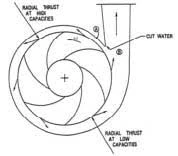Mobile:+86-311-808-126-83
Email:info@ydcastings.com
Understanding the Importance of Your Car's Engine Oil Pan and Maintenance Tips
Understanding the Car Engine Oil Pan Its Importance and Maintenance
The engine oil pan, often referred to as the oil sump, is an essential component of an internal combustion engine. Its primary function is to store the engine oil, which plays a critical role in lubricating the engine’s moving parts. This article delves into the oil pan's significance, its design, common issues, and how to maintain it for optimal engine performance.
The Role of the Oil Pan
The oil pan serves several crucial functions in an automobile
1. Oil Storage The oil pan is the reservoir for engine oil. The oil is circulated throughout the engine to reduce friction between moving parts, ensuring smooth operation and efficiency.
2. Heat Dissipation As the engine operates, it generates heat. The oil pan helps dissipate this heat, aiding in keeping the oil within optimal temperature ranges, which is vital for effective lubrication.
3. Filtration Many oil pans are equipped with screens or baffles that help trap contaminants and debris from circulating oil, ensuring that any harmful particles do not contaminate the engine.
4. Sump Design The design of the oil pan often accommodates the necessary oil pickup, which collects oil to be circulated through the engine. This is crucial during acceleration and turns, where oil may slosh around within the pan.
Common Designs of Oil Pans
Oil pans come in various designs depending on the engine configuration. Most commonly, they are made from stamped steel or aluminum, with aluminum pans being lighter and often providing better heat dissipation. Some may have a composite material construction.
There are two primary types of oil pans
1. Wet Sump This is the most common type of oil pan found in vehicles. In a wet sump system, the oil is stored in the oil pan at the bottom of the engine, and it is pumped throughout the engine via an oil pump.
2. Dry Sump More commonly used in high-performance vehicles, a dry sump system consists of multiple oil reservoirs, allowing for better oil management and reduced chances of oil starvation during extreme cornering or acceleration.
car engine oil pan

Common Issues with Oil Pans
Oil pans can be susceptible to various issues, some of which may lead to significant engine problems if not addressed promptly
1. Oil Leaks Over time, the gaskets that seal the oil pan may wear out, leading to leaks. Oil leaks not only result in a loss of lubrication but can also cause environmental hazards and potential fire risks.
2. Cracks and Damage The oil pan can also be prone to cracks or dents, especially if it is made of metal. This damage may arise from road debris, collisions, or improper installation. A damaged oil pan can lead to significant oil loss and engine damage.
3. Contamination Contaminants can accumulate in the oil pan over time, which can degrade the oil quality and increase wear on engine components. Regular oil changes are essential to mitigate contamination.
Maintenance Tips
To ensure the longevity and functionality of your oil pan, consider the following maintenance tips
1. Regular Oil Changes Changing your engine oil at regular intervals is vital. Fresh oil will not only keep your engine lubricated but will also help in cleaning the oil pan and preventing sludge buildup.
2. Inspect for Leaks Regularly check under your vehicle for oil spots or puddles. If you notice any signs of leaks, it is imperative to have them inspected and repaired promptly.
3. Assess Damage During routine maintenance, have your oil pan examined for any signs of physical damage or corrosion. Addressing minor issues early can prevent more significant problems down the line.
4. Use Quality Oil and Filters Always use oil and filters that meet or exceed your vehicle's specifications. High-quality oil can provide better protection and performance.
Conclusion
The engine oil pan is not just a simple storage unit for engine oil; it plays a pivotal role in maintaining engine health and performance. By understanding its functions, recognizing common issues, and adhering to maintenance practices, vehicle owners can ensure that this critical component continues to perform optimally, protecting the engine and enhancing the overall lifespan of the vehicle.
-
Impeller Technology That Powers Precision in Pump SystemsNewsMay.22,2025
-
Valve Durability Begins with Quality Cast Iron ComponentsNewsMay.22,2025
-
Performance Cooling with Advanced Automobile Water Pump SolutionsNewsMay.22,2025
-
How Motor Housing and Oil Pans Shape Engine PerformanceNewsMay.22,2025
-
How Metal Castings Drive Modern Manufacturing EfficiencyNewsMay.22,2025
-
Exploring the Engineering Behind Valve Body CastingsNewsMay.22,2025











